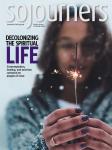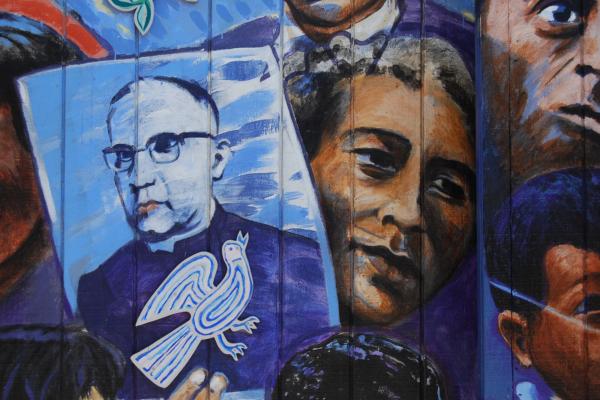"THE CRY OF THE POOR rises to the heavens!” With one phrase, proclaimed at a conference of Catholic bishops in Medellín, Colombia, in 1968, history changed in Latin America.
Fifty years ago, the “princes of the church”—with the support of Pope Paul VI, who opened the gathering, and embodying the renewal of Vatican II—agreed to dethrone themselves. A “preferential option for the poor,” they said, would lead the renewed Catholic Church.
Bishops and priests, religious sisters and brothers, began working to change the historic structures of inequality and abuse that had existed in Latin America since the 15th-century invasion of the rapacious Spaniards. Faith was no longer held captive by the educated and powerful elites; now laypeople were empowered to make their faith their very own bread and Word. Christian base communities emerged. Theologians got busy listening “from below.”
A name was attached to the Medellín movement with the arrival of Father Gustavo Gutierrez’ groundbreaking book A Theology of Liberation. Liberation theology, rooted in the economically and politically oppressed, became the first modern theological movement to emerge in the Catholic Church outside of Europe.
In August, people from 15 countries on four continents regathered in Medellín to commemorate the 50th anniversary of the birth of liberation theology. Catholic priests and Protestant pastors, lay people and bishops, and Indigenous and Afro-descendant communities gathered to reflect on the past and to look forward.
While liberation theology became part of a powerful movement for freedom, it was not universally embraced by the old, firmly embedded ecclesial and secular power structures. The elite classes, which tightly controlled most countries then—and still do now—had no intention of relinquishing their privilege. State structures viciously attacked the emerging liberation movements. Deadly repressive forces targeted several bishops present at the 1968 conference who advanced the “preferential option for the poor,” linked evangelization and economic development, and forged faith to social justice. Some bishops, notably the recently canonized St. Óscar Romero of El Salvador, along with many priests and religious brothers and sisters and tens of thousands of lay people, were killed by repressive regimes in Guatemala, El Salvador, Brazil, Colombia, and elsewhere.
Those who gathered in Medellín this year examined the original document through the method of “see, judge, act” developed by Christian base communities. The original document made no mention of the prophetic role of women or the foundational contribution of the rich cosmologies of Indigenous and Afro-descendant peoples, some of whom are reclaiming Abya Yala as the pre-conquest name for the region. The “enemies of life” still proliferate, they observed. And 50 years ago, the world was not aware of catastrophic climate change.
Where Christians have been involved in challenging injustice, defending vulnerable communities, and defending the Earth itself—directly implementing the principles of the Medellín conference—they have met crushing violence from predatory elites.
Now, Christians faithful to the incarnation of the God of love in the figure of a humble carpenter from Nazareth are called to radical nonviolent actions in defense of creation and her creatures. This is the prophetic affirmation of Medellín for today: We follow a crucified and resurrected God, who will always bear a preferential option for the littlest ones. And we are grateful for the witness of St. Romero of the Americas to guide us.

Got something to say about what you're reading? We value your feedback!







